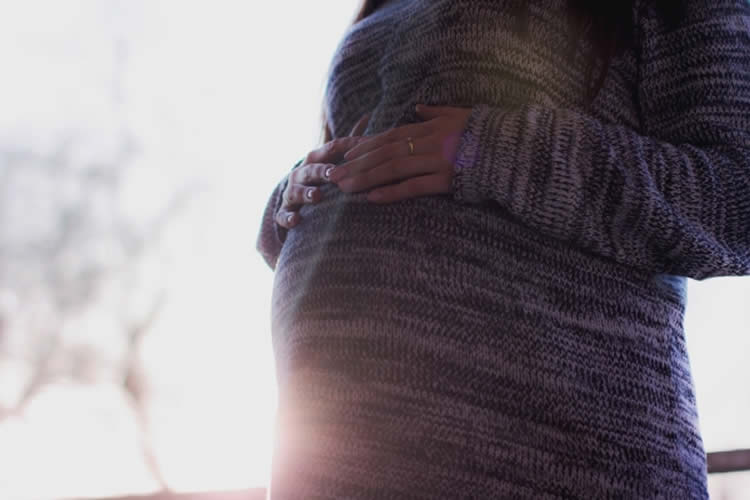Summary: A new study reveals lower levels of vitamin D at 20 weeks of pregnancy is linked to an increased risk of autism traits in the offspring.
Source: University of Queensland.
Researchers at The University of Queensland’s Queensland Brain Institute have found a link between Vitamin D deficiency in pregnancy and increased autism traits.
The study, led by QBI researcher Professor John McGrath and involving Dr Henning Tiemeier from the Erasmus Medical Centre in The Netherlands, found that pregnant women with low Vitamin D levels at 20 weeks’ gestation were more likely to have a child with autistic traits by the age of six.
“This study provides further evidence that low vitamin D is associated with neurodevelopmental disorders,” Professor McGrath said.
“Just as taking folate in pregnancy has reduced the incidence of spina bifida, the result of this study suggests that prenatal Vitamin D supplements may reduce the incidence of autism.”
While it is widely known that Vitamin D is vital for maintaining healthy bones, there is now a solid body of evidence linking it to brain growth.
Vitamin D usually comes from exposure to the sun, but it can also be found in some foods and supplements.
The study examined approximately 4200 blood samples from pregnant women and their children, who were closely monitored as part of the long-term “Generation R” study in Rotterdam, The Netherlands.
“This research could have important implications from a public health perspective,” Professor McGrath said.

“We would not recommend more sun exposure, because of the increased risk of skin cancer in countries like Australia.
“Instead, it’s feasible that a safe, inexpensive, and publicly accessible vitamin D supplement in at-risk groups may reduce the prevalence of this risk factor.”
Autism – or autism spectrum disorder – is used to describe lifelong developmental disabilities including an inability to communicate with others, interact socially, or fully comprehend the world.
Professor McGrath’s team has previously found a link between low Vitamin D in neonatal blood and an increased risk of schizophrenia.
Funding: The study is published in Molecular Psychiatry and is funded by the National Health and Medical Research Council (NHMRC).
Source: John McGrath – University of Queensland
Image Source: NeuroscienceNews.com image is adapted from the University of Queensland press release.
Original Research: Full open access research for “Gestational vitamin D deficiency and autism-related traits: the Generation R Study” by A A E Vinkhuyzen, D W Eyles, T H J Burne, L M E Blanken, C J Kruithof, F Verhulst, V W Jaddoe, H Tiemeier and J J McGrath in Molecular Psychiatry. Published online November 29 2016 doi:10.1038/mp.2016.213
[cbtabs][cbtab title=”MLA”]University of Queensland. “Vitamin D Deficiency During Pregnancy Linked to Increased Risk of Autism Traits in Offspring.” NeuroscienceNews. NeuroscienceNews, 14 December 2016.
<https://neurosciencenews.com/vitmain-d-pregnancy-autism-5747/>.[/cbtab][cbtab title=”APA”]University of Queensland. (2016, December 14). Vitamin D Deficiency During Pregnancy Linked to Increased Risk of Autism Traits in Offspring. NeuroscienceNews. Retrieved December 14, 2016 from https://neurosciencenews.com/vitmain-d-pregnancy-autism-5747/[/cbtab][cbtab title=”Chicago”]University of Queensland. “Vitamin D Deficiency During Pregnancy Linked to Increased Risk of Autism Traits in Offspring.” https://neurosciencenews.com/vitmain-d-pregnancy-autism-5747/ (accessed December 14, 2016).[/cbtab][/cbtabs]
Abstract
Gestational vitamin D deficiency and autism-related traits: the Generation R Study
There is intense interest in identifying modifiable risk factors associated with autism-spectrum disorders (ASD). Autism-related traits, which can be assessed in a continuous fashion, share risk factors with ASD, and thus can serve as informative phenotypes in population-based cohort studies. Based on the growing body of research linking gestational vitamin D deficiency with altered brain development, this common exposure is a candidate modifiable risk factor for ASD and autism-related traits. The association between gestational vitamin D deficiency and a continuous measure of autism-related traits at ~6 years (Social Responsiveness Scale; SRS) was determined in a large population-based cohort of mothers and their children (n=4229). 25-hydroxyvitamin D (25OHD) was assessed from maternal mid-gestation sera and from neonatal sera (collected from cord blood). Vitamin D deficiency was defined as 25OHD concentrations less than 25 nmol l−1. Compared with the 25OHD sufficient group (25OHD>50 nmol l−1), those who were 25OHD deficient had significantly higher (more abnormal) SRS scores (mid-gestation n=2866, β=0.06, P<0.001; cord blood n=1712, β=0.03, P=0.01). The findings persisted (a) when we restricted the models to offspring with European ancestry, (b) when we adjusted for sample structure using genetic data, (c) when 25OHD was entered as a continuous measure in the models and (d) when we corrected for the effect of season of blood sampling. Gestational vitamin D deficiency was associated with autism-related traits in a large population-based sample. Because gestational vitamin D deficiency is readily preventable with safe, cheap and accessible supplements, this candidate risk factor warrants closer scrutiny.
“Gestational vitamin D deficiency and autism-related traits: the Generation R Study” by A A E Vinkhuyzen, D W Eyles, T H J Burne, L M E Blanken, C J Kruithof, F Verhulst, V W Jaddoe, H Tiemeier and J J McGrath in Molecular Psychiatry. Published online November 29 2016 doi:10.1038/mp.2016.213






